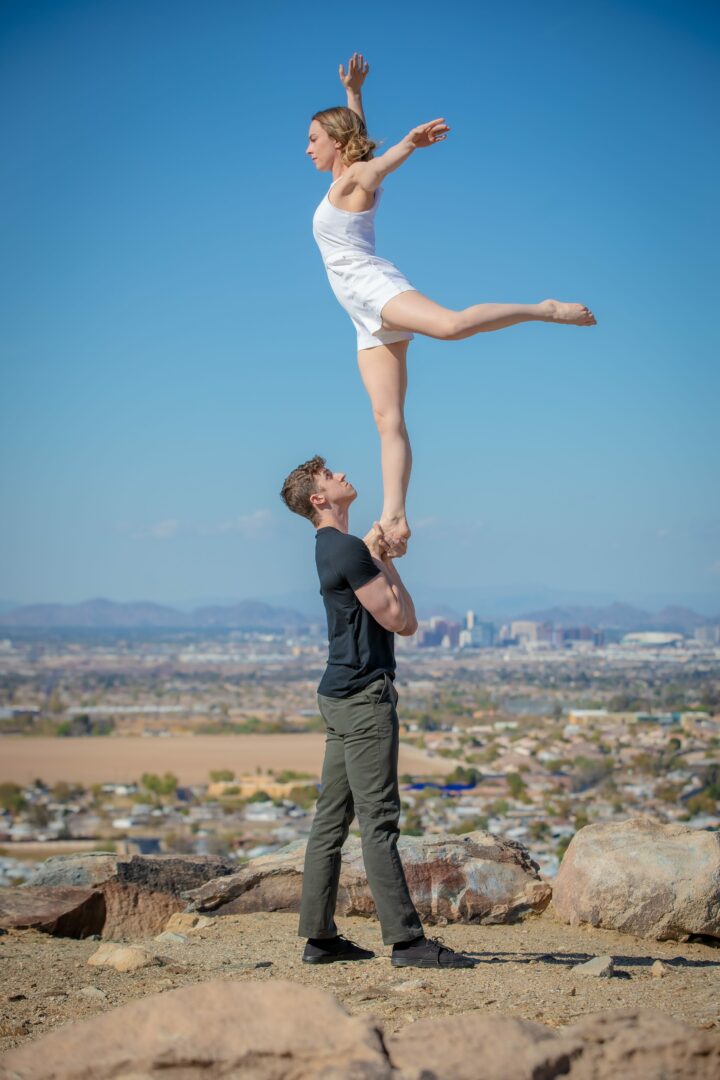We’re looking forward to introducing you to Alisha Rickman. Check out our conversation below.
Alisha, really appreciate you sharing your stories and insights with us. The world would have so much more understanding and empathy if we all were a bit more open about our stories and how they have helped shaped our journey and worldview. Let’s jump in with a fun one: What is a normal day like for you right now?
My day kicks off with a leisurely coffee ritual around 9:30am. Given our night owl tendencies, mornings are my me-time. I might pen a masterpiece, dive into a juicy book, groove to a podcast, or map out world domination, I mean, the day ahead. By 11am, I’m knee-deep in admin work hoping to keep our business thriving. It usually consist of marketing magic, graphic design sorcery, budgeting battles, and studio project plotting.
Come 2pm, I’m getting ready for the day and leaving the house. My partner and I typically hit the studio by 3pm to enjoy the calm before the chaos. From 3pm to 5:15pm, I’m tackling my online handstand program from my own coach. Soaking up knowledge and chasing my own athletic goals in Circus. As soon as 5:15pm hits, it’s time to get a quick snack and start coaching for the day. What we coach may change from day to day, covering classes like Handstands, Hand-to-Hand, Dance Lifts and Tumbling from 5:30pm to 8:30pm. Post-coaching, we either call it a day or indulge in some Hand-to-Hand training of our own during open gym time. By 9:30pm, it’s home sweet home for dinner and chill mode, wrapping up the day with our favorite video game or a binge-worthy TV series.
Can you briefly introduce yourself and share what makes you or your brand unique?
Hello! I’m Alisha Rickman, and I co-own the Arizona Circus Center alongside my fiancé, Brent. This September marks four years since we opened our Circus Center here in Phoenix. At Arizona Circus Center, we offer a diverse array of programs catering to adults and youth of all skill levels. Whether you’re a complete beginner taking your first steps into the world of circus arts or an experienced practitioner honing your skills, we have something for everyone. Our classes cover various disciplines, including Handstands, Hand-to-Hand, Dance, Flexibility, Conditioning, and Aerial. Additionally, we host group classes, private lessons, workshops, camps, shows, parties, and much more!
When we launched the Arizona Circus Center, our dream was to enhance circus training opportunities in the Phoenix area. Previously, we found ourselves traveling out of state for quality instruction. Inspired by the San Diego Circus Center, with its excellent facilities, coaching, and vibrant community, we established our own center with the mission of providing high-level training that nurtures both athleticism and artistry.
In just four years, we’ve accomplished some truly remarkable feats. We’ve produced our own shows right here in our facility, transforming our training center into a stage that offers aspiring artists real-world experience to thrive in this industry. We’ve even sent performers to the VIVA Festival in Las Vegas, where our students returned with first-place accolades.
One of my favorite aspects of this journey is the opportunity to connect and collaborate with industry professionals. I truly enjoy working with talented artists, high-level coaches who are shaping the next wave of talent, and fellow studio owners.
Great, so let’s dive into your journey a bit more. What’s a moment that really shaped how you see the world?
I often say I was really lucky to go to college and be directed in to a degree that truly fits me and my passion and talents. Initially, I began my associate’s degree with the aspiration of becoming a veterinarian, but I found myself struggling immensely in one particulate class, chemistry. Although I had a passion for science throughout high school, I faced relentless challenges in my college chemistry courses, trying and failing repeatedly to grasp the material. No matter how hard I studied, the information just wouldn’t stick.
After failing chemistry for the third consecutive time, I sought help from an advisor, feeling lost and unsure of my path. It became clear to me that I wouldn’t be able to navigate the lengthy medical journey if I struggled this much at the beginning. During our conversation, she asked about my interests and suggested exploring Event Planning. While I was hesitant at first, I was open to trying something new.
This shift in my curriculum was monumental. The classes were engaging, the instructors quirky, and the material was hands-on. Unlike the conventional approach of reading textbooks and taking exams, we experienced real-world applications. We organized events, ventured outside the classroom, and delved into topics like tourism, which I absolutely loved. One instructor, in particular, stood out for her exceptional teaching. Sitting in her tourism class, I felt inspired; she transformed my perspective on not just who I was in the world, but also what I could achieve within it.
Lorie Tuma ignited my desire to pursue remarkable opportunities with my degree and future. We explored breathtaking destinations around the globe and discovered the extraordinary career prospects within the tourism industry, gaining invaluable real-life experience along the way. I volunteered at incredible events and learned from industry professionals. Lorie even offered me the chance to work at the Cannes Film Festival in France, selecting a few of us to participate. The lessons I gained in her classroom and from her mentorship will leave a lasting impression on me, as she opened my eyes to the endless possibilities the world has to offer.
Was there ever a time you almost gave up?
I believe that if you’re not occasionally grappling with the urge to give up, you might be too comfortable in life. I can’t imagine a journey without that nagging question: Am I truly doing what’s best for me? Am I facing challenges, or have I taken a wrong turn? These are tough questions to confront during difficult times.
During my time as a collegiate cheerleader, I faced many challenges and tough coaching. I often felt like I was at the bottom, struggling to find my worth on the team. Ultimately, I persevered and proved I belonged, but that struggle has lingered. I still feel that tension in my training today. I frequently question whether I have a natural talent for handstands or hand-to-hand skills, carrying a significant amount of self-doubt.
This dramatically increased after a moped accident that resulted in a torn ACL a few years ago. It forced me to reconsider whether it was time to give up on my identity as an athlete and an artist. I never felt inherently talented in my pursuits, and now my body would never be the same. Yet, here I am, still training and improving as an athlete years after my surgery and recovery.
I frequently contemplate whether stepping away from circus arts might lead me toward something that feels more instinctive and effortless. While other paths may seem simpler, I am certain of my love for Circus. Nothing brings me greater joy or grounds me in the present quite like it.
Alright, so if you are open to it, let’s explore some philosophical questions that touch on your values and worldview. What are the biggest lies your industry tells itself?
While passion may ignite our journey in circus, it alone cannot sustain us. Passion doesn’t pay rent, cover medical expenses from injuries, or guarantee fair compensation for the countless hours spent training and rehearsing. Too often, circus artists, coaches, and studio owners accept burnout, underpayment, and instability as the “price” of pursuing what we love. Our contributions to the circus, be it as performers, coaches, show producers, or studio owners, are frequently undervalued. Consequently, we face a dilemma: do we accept the worth others assign to us, or do we embrace financial instability due to a lack of clients or job opportunities?
The reality is that passion without structure leads to exploitation. Sadly, many outside our industry fail to appreciate the art sufficiently to recognize its value. It’s akin to attending an art show and questioning why a particular painting fetches $10,000. If one doesn’t grasp its significance, understanding its value becomes challenging. In a studio context, clients often perceive an aerial class as merely another group fitness session. They overlook that an aerial class is highly specialized. Aerial classes are conducted in small groups, with equipment costing thousands of dollars, have high insurance costs, and limited coaching availability.
Consider a performer attempting to sell their act. They invest thousands in training or education to pursue this career, frequently providing their own costumes, insurance, and equipment. They also factor in travel time and the time spent at an event to deliver a 4-5 minute routine. With the risks associated with dangerous skills and set-ups, they often leave with just $300. When all expenses related to these performances are considered, many performers end up at a financial loss. However, if they set their prices too high, reflecting what they genuinely need to earn a living, they risk losing clients and bookings.
If the industry relies solely on individuals’ willingness to give their all out of love for the art, those supporting it (artists, riggers, coaches, and producers) end up bearing the financial burden. This reliance contributes to high turnover rates, significant physical and emotional burnout, and the departure of many remarkable circus talents in search of more stable careers.
Sustainable circus practices demand more than just passion; they require professional standards, fair compensation, safe working environments, and business practices that value artists as much as their artistry. While passion should indeed inspire us, it cannot be our only resource. To ensure the long-term success of circus arts, we must stop believing that passion alone can keep the lights on and start establishing systems that provide sustainability.
The truth is, passion alone isn’t sufficient. However, when combined with sustainability, respect, and structure, that’s where the circus can truly thrive.
Okay, we’ve made it essentially to the end. One last question before you go. What will you regret not doing?
When I talked about walking away from Circus I often know I would regret not getting to work in the industry deeper. I love our Circus Center, our community and what we have built. I would love to continue to grow myself to be able to provide more to our students and coaches. Whether it’s simply connecting with high level professionals in casting, on shows, or even performing. I would regret not getting the full experience myself.
Contact Info:
- Website: https://www.ArizonaCircusCenter.com
- Instagram: @ArizonaCircusCenter.com
- Facebook: https://www.Facebook.com/ArizonaCircusCenter
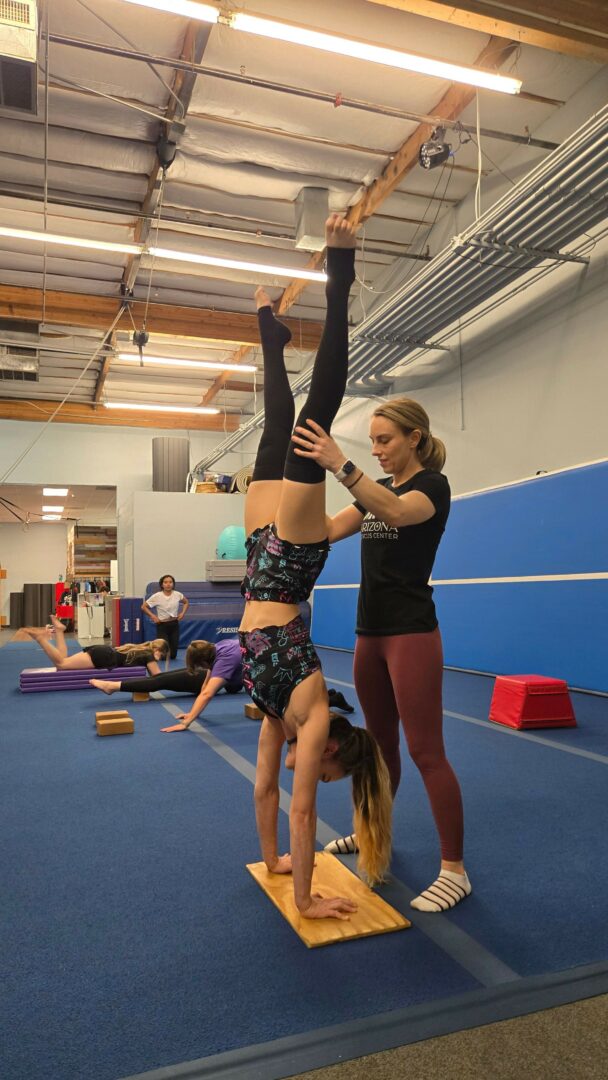
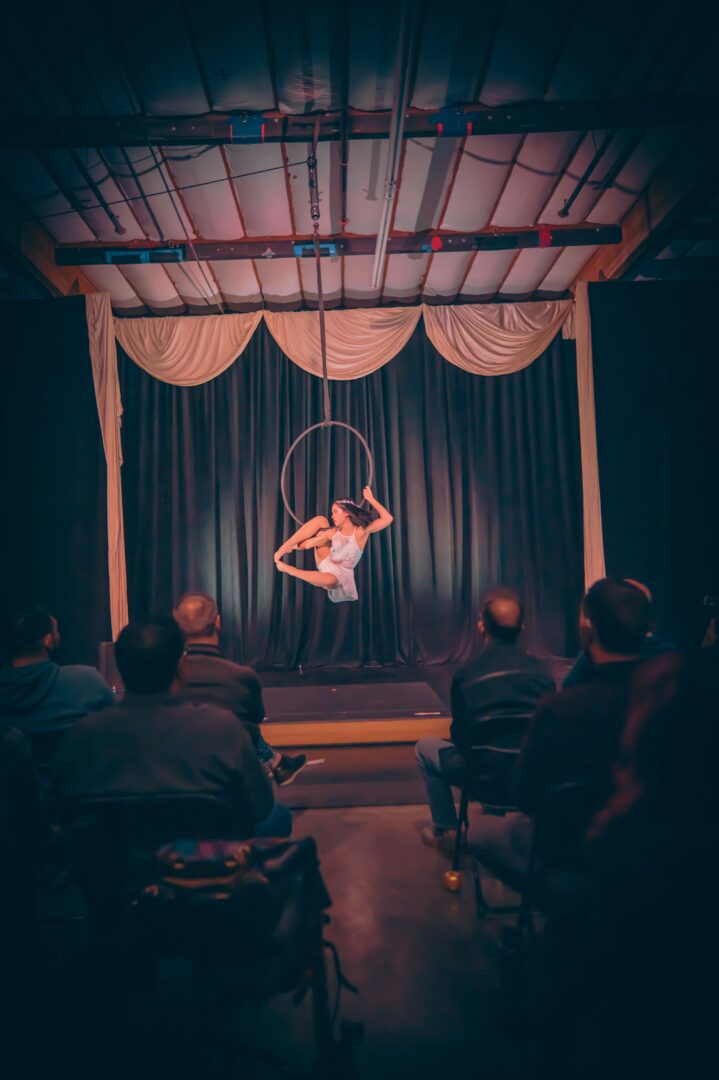
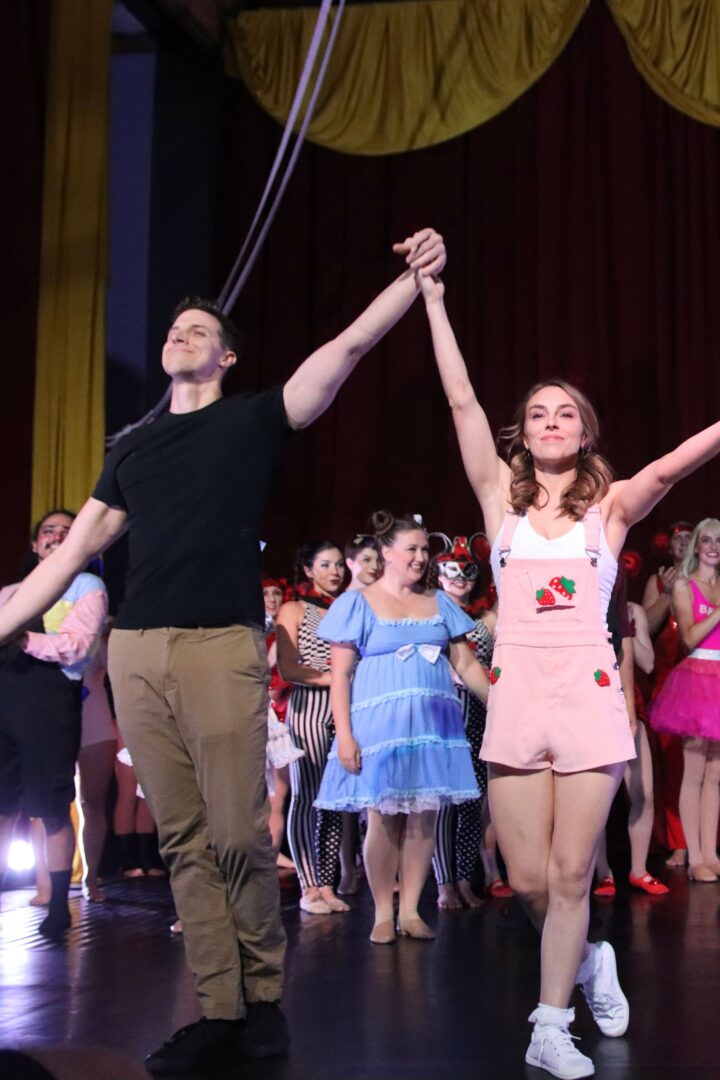
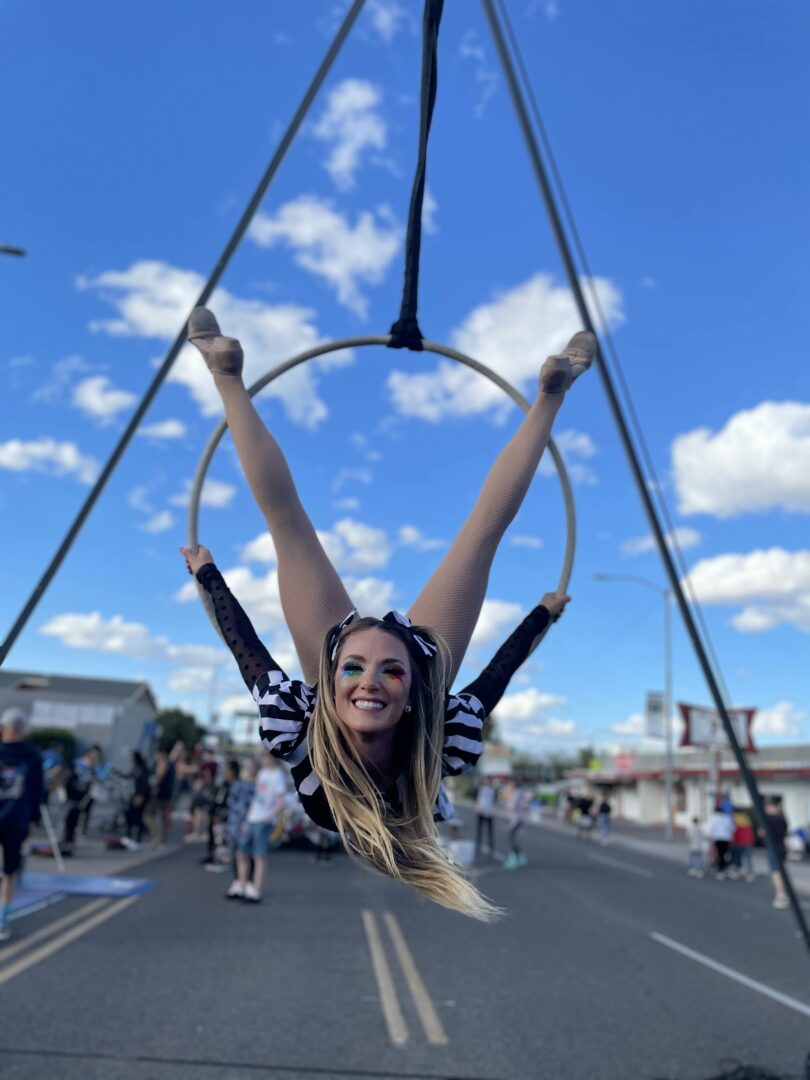
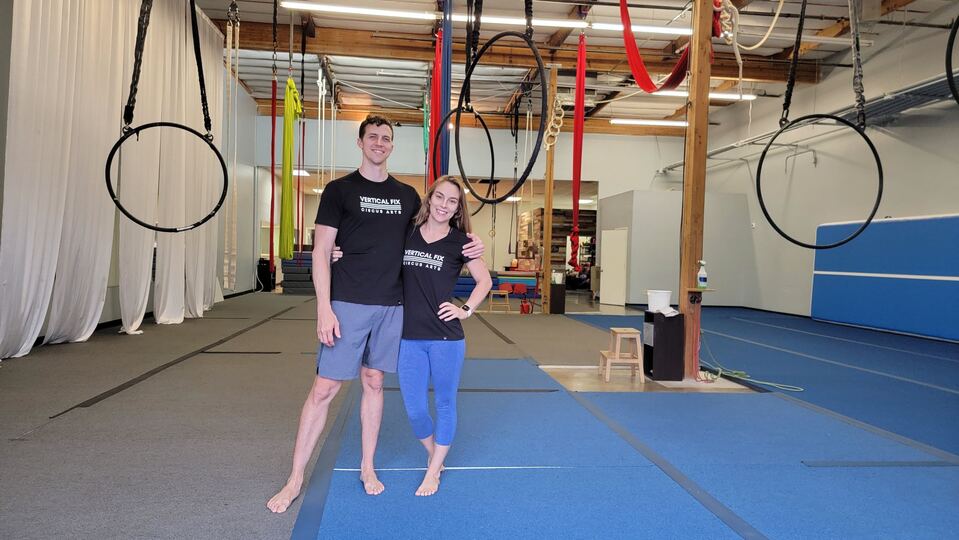
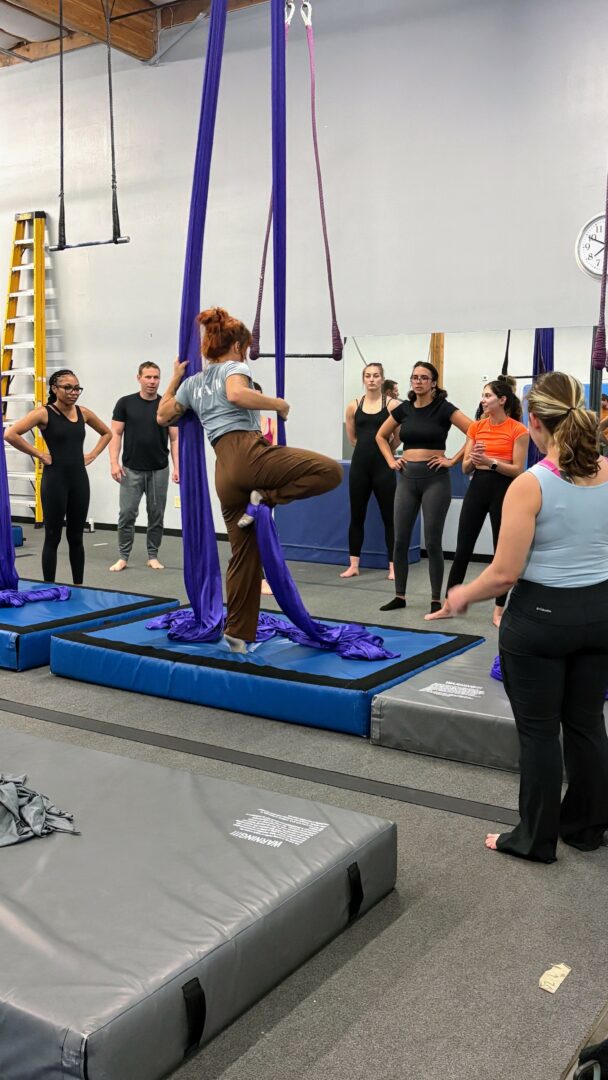
Image Credits
Photo credits in name of the photo
so if you or someone you know deserves recognition please let us know here.

